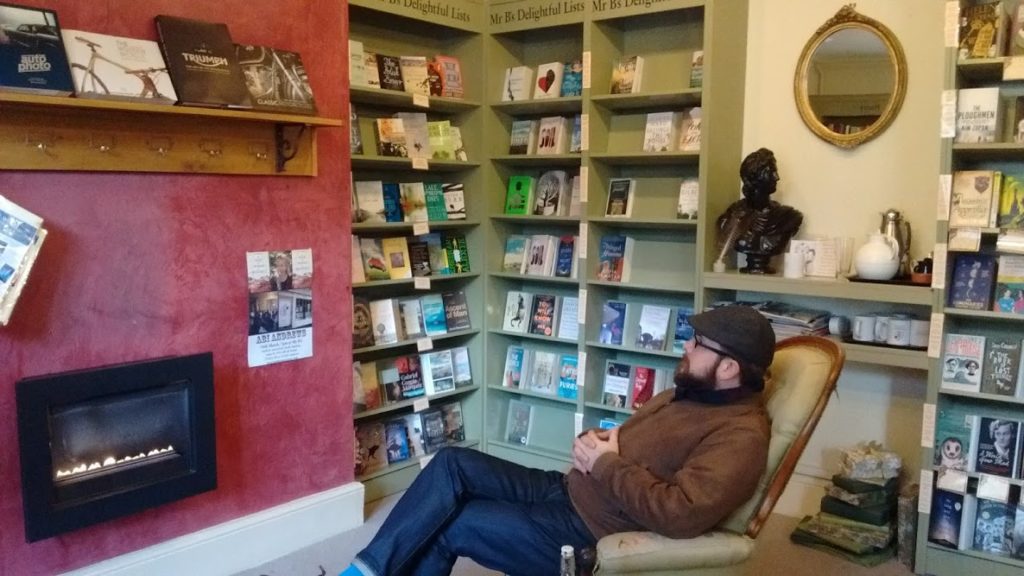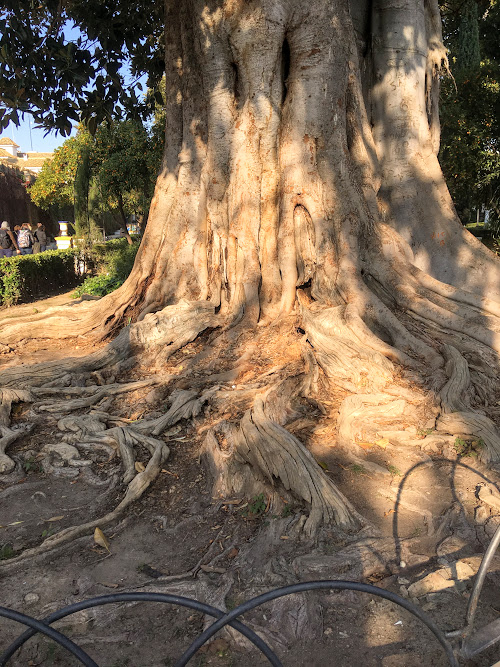This Week’s Bit of String: Crime and Punishment
Spring 2003, early evening Eastern Standard Time/ late night Greenwich Mean Time. I pick up the wall-mounted cordless phone and ring my ex-boyfriend as arranged. Our son is occupied with Legos on the floor of my subsidised New Hampshire apartment.
His father answers his mobile in the London flat where he’s completing his masters. I refuse to let his voice thrill me this time; I’m giving up on waiting for him to re-articulate his interest.
We exchange the requisite weather updates and talk about our son. Then my ex-boyfriend says, “I’m reading Crime and Punishment. It’s quite good…”
Oh, are you? Instantly I’m hooked again.
Present Day, British Summer Time. I come home from work and husband-formerly-known-as-ex-boyfriend launches right in with his feelings regarding the latest twist in the John Irving novel I recommended. “I did not see that coming!”

Among all he and I share, reading is perhaps the most nourishing and positive. It fulfils us better than, say, watching TV together, because we’re using our brains a little more. Plus the flexing of empathy and imagination required to enjoy a book helps with the heavy lifting in a relationship.
There’s magic, too, from a book. We create a world in our heads, and what is more marvellous than subsequently talking to a loved one and finding that the same bits of magic worked on them, too? When you watch a film with someone, you see and hear the same things at once. Reading is more open to interpretation, so shared impressions are extra special and further observations are bonus insights.
Literary Connections
The unifying power of the written word seems to reach between books themselves sometimes, rather than just outward to us. Have you ever noticed that? I’ll read one book that makes the same historical reference my last, completely different read did. A couple weeks ago I read Benjamin Zephaniah’s autobiography. It immersed me in the activist, anti-National Front environment where he first started performing his poetry, with groups such as Rock Against Racism.
Then I read Kamila Shamsie’s (justly) award-winning Home Fires, about the tragic effects of radicalisation. It included a single line about a character’s parents meeting at a Rock Against Racism rally. Something I never knew about before, and suddenly my reading material conspired to bring it to my attention.
Home Fires is also a modern retelling of Sophocles’s Antigone, when before The Life and Rhymes of Benjamin Zephaniah I’d read Natalie Haynes’s rollicking The Ancient Guide to Modern Life. Its many cultural references included Antigone.
A couple of years ago I read a novel about George Eliot and then a novel about an affluent, up-and-coming German family in the lead-up to World War II. Quite different novels, set decades apart—yet characters from each travelled to Naples and stayed in the exact same hotel, and I happened to read the books one week after each other.
It’s as if books have their own invisible network of roots and fungi, communicating and passing nutrients to each other like some trees do. One book may seem isolated from another, but the survival of one can benefit the rest. Perhaps books know the more we read, the more our appetite grows. Ah, that tantalising moment when we get to decide what to read next!
The Roots System
Of course, there is a root system books connect to: our brains. Relatively recent studies show that brains’ ‘white matter’ is as essential to reading and learning as the grey matter. White matter are the neural pathways connecting parts of the brain (the grey matter). They’re named for the lipid myelin coating that protects some neuron parts. The wider these pathways are, the more easily signals can fire off from one long neural axon arm to the little dendrite roots on another neuron.

While having smooth white matter pathways helps us to read, reading in turn helps make the pathways smoother. It’s like a path in the woods; the more we walk down it, the smoother it gets. So improved connections in our brain is one of reading’s effects. It also improves our attention span, and anyone else who’s been married a few years (it’s fifteen for my husband and I now) knows a good attention span is useful.
Side note: My husband has been known to read things I wouldn’t. I read a lot I know he wouldn’t enjoy. That’s okay. Please never condemn a loved one for their reading choices. Or musical taste. Or even whether they like Brussels sprouts. Just please, let’s not.
The rewards of reading are somewhat analogous to a longterm relationship. There might be bits that aren’t as fast-paced. You’ve got to allow the narrative some descriptive time to set the scene. You’ve got to muddle through those dialogue bits my husband dislikes (and I love) during which, yes, unfortunately, a character’s thoughts and feelings may be exposed. And in the end, that effort is worth it because you’ve learned, you’ve laboured, and shared.
Have you found that books enhance relationships? Do you ever notice the pages conspiring with each other to broaden your horizons and change your fate?